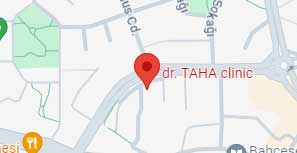Ovarian cyst is a pocket full of fluid that is created inside or on the surface of the ovary. Every woman has one ovary both side of the uterus that is like an almond shape and size. Ova (Egg) develop and mature in the ovaries. During the women’s childbearing years, the eggs are released in the monthly cycles. All women have ovarian cyst during their life.

Most ovarian cysts are painless and harmless which will disappear after some months by their own. But some of them (especially if they have ruptured) can causes serious symptoms. Women should do regular pelvic exams such as sonography or mammography in order to be informed of symptoms that are signs of potential serious disease.
What is ovulation?
Ovulation is controlled by the response of hormones chain reactions that originate from brain’s hypothalamus. As part of the women’s menstrual cycle, the follicles are ruptured and ova is released from ovary. Follicles are small fluid sac inside the ovary that contain female gametes or eggs. The procedure of realizing egg from ovary called ovulation.
What causes ovarian cyst?
Sometimes follicles are not ruptured and don’t release eggs during the ovulation, instead save more fluid in the ovary that is called follicular cyst. In some other cases, follicles release eggs but the sac is reclosing instead of dissolving and swell by blood and the other fluids. This type of cyst called yellow or corpus luteum cyst. Both above conditions are types of functional ovarian cysts that is the most common type of ovarian cysts.

Symptom of ovarian cyst
Most ovarian cysts are small without special symptom.
- But patient may feel some symptoms such as bloating, swelling, pressure and pain under the stomach. This pain can be sharp, dull or come and go.
- If the ovarian cyst ruptures, patient may experience sever and sudden pain.
- If cyst cause twisting of the ovary, patient may have severe pain associated with vomiting and nausea.
Some uncommon symptoms include:
- Pelvic pain
- Dull pain in back and hips surrounding
- Blocking bladder or bowel completely
- Feeling pain during sex
- Unreasonable weight gain
- Breast sensitivity
- Frequent urination
Different types of ovarian cyst
Functional cyst
Functional cyst contains two types:
Follicular cyst is the most common type. Every woman has two ovaries that egg pass from it into the womb in order to fertilize by sperm. Egg is created in the follicle that contain fluid to protect egg during its growth. When the egg is released, follicle will rupture. In some cases, follicle won’t shed its fluid or is gathered after releasing the egg or doesn’t release at all. In this situation follicle will refill by the fluid and become a follicular ovarian cyst. Cyst can appear at any time on its own and goes away by itself within some months.
Luteal cyst is less common than the other type. After releasing egg from ovary, a tissue named Corpus luteum will remain. Luteal cyst will develop as the corpus luteum that is filled by blood, but normally it will go away after few months. However, if these cysts split or rupture, can causes pain and internal bleeding.
Pathological cysts
These type of cysts also contain two categories:
Dermoid cysts (cystic teratomas) that are mostly benign and are formed from the cells that make eggs. These cysts only can be removed by the surgery method and are the most common cyst among the women younger 30 years old.
Cyst adenomas are the type of ovarian cyst that are developed by the extern cells that cover ovary. Some of them contain thick and mucoid fluid while the others ones are filled of watery liquid. These cysts usually attached to the extern wall of the ovary by the stalk that can grow considerably. Cyst adenomas are rarely cancerous and should be removed surgically. These type of cysts are more common among women older than 40 years.
Ovarian cyst during pregnancy
Ovarian cysts may be found during the pregnancy that mostly are diagnosed within the sonography before the delivery. They are usually benign and no need to surgical treatment. In case of malign, rupture, torsion of the cyst, and larger size that can make problem for baby, the surgical treatment should be applied as soon as possible.
Prevention
Although there is no way to prevent ovarian cysts, the regular pelvic examinations can help to early diagnosed. Also you should be aware regarding changes in menstrual cycle as well as abnormal menstrual signs (that has persisted for several months) and consult with your doctor about these changes.
Ovarian cysts treatment
If ovarian cysts don’t remove own their self or get bigger, your doctor may suggest the following method to make them smaller or remove cyst.

Birth control pills
If you have frequent ovarian cysts, your doctor may describe birth control pills in order to prevent ovulation and lessen the risk of forming new cysts. These tablets also can release the risk of cancer. The risk of cancer is more among menopausal women.
Laparoscopy
If your cyst is small and your exam results show the risk of cancer, your doctor may do the laparoscopy surgery to remove the cyst. The laparoscopy procedure includes to make a small incision close to the belly button and then insert a device into the stomach to remove the cyst.

Laparotomy
If the size of your cyst is larger, your doctor will make a bigger incision on your stomach and remove the cyst and send it to the lab for testing. If the cyst is suspect to cancerous, may be the hysterectomy surgery applied for removal of the ovary and uterus.
Categories
Ways of communication
Routing
Quick access
Social Networks


